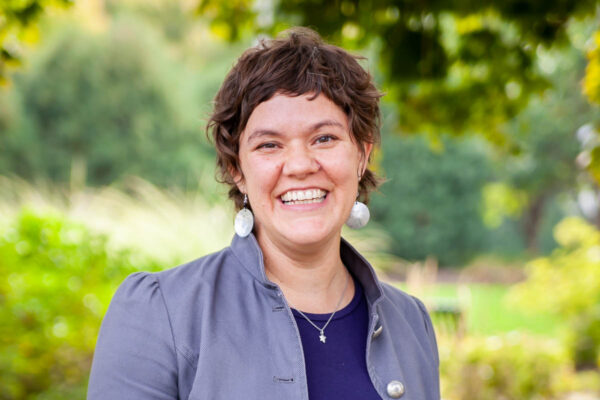Kirangare Food

When our family traveled to Tanzania a few weeks ago, I packed an embarrassing amount of snacks. I was convinced that our children would need peanut butter crackers or granola bars, just in case. My husband kept telling me that we wouldn’t need it, that we’d be so well fed. And you know what? He was right. We gave a lot away, but a lot of those snacks traveled the world before we ate them on the car ride home from the airport.
We were so well cared for during our travels, especially during our days in a small village called Kirangare. (Here is a link read more about our adventures.) It is a long, curvy drive on an unpaved road to get to this town on the edge of the mountain. Most of the families live on very little, but you wouldn’t know this if you saw the meals they fed us.
I stayed with a man named Gasper and his mother, sister, niece and their three children. Every morning, we’d wake up to Africafe instant coffee with fresh warm milk from the cow that sang a moo-filled lullaby the night before. We had eggs from the chickens outside and the most incredible avocado I’ve ever consumed, the first ripe one of the season. Fresh fruit and chapati and purple yams filled our bowls.
The good food only continued throughout the day as we visited other small communities and families. Rice with incredible spices, chicken and beef, goat and beans, stewed greens and freshly picked fruit. Tea made with ginger grown in soil steps away from where we sat. There was one day we had five meals, but we came home to find Gasper’s mother had prepared ginger tea. It sat on the table with some yams, chapati, and watermelon. She wanted to make sure we would sleep well with a full stomach and a full heart from the conversation as we ate.
The people of Kirangare filled us not just with food and drink, but with prayer and song and conversation. I asked Pastor Fue, our host and translator, what happened with the extra food. No one has refrigerators in Kirangare. Pastor Fue said that whatever the family didn’t eat would be shared with neighbors who didn’t have as much. People were always giving food to one another.
Since returning home, I daydream about those meals. I miss the simple, nutritious, and delicious meals that took so much time to prepare over charcoal stoves in homes without running water. The meals were served with such generosity and joy, given and shared so all would have enough. It was an investment in community, in care, in wholeness.
I dream, too, that on this side of the world, we could live with the same kind of communal care and generosity that we experienced in Kirangare. Right now, families in our community are cut off from their SNAP (Supplemental Nutrition Aid Program) benefits. People, especially children, who already live with so little, have to make hard choices and go without food. Food banks are stretched thin.
Yet, there are so many of us who have so much. Refrigerators are filled to bursting, many of us have way more than we need, so why are our neighbors hungry? It is not a problem with not having enough, it is about our unwillingness to see the humanity and the need in those around us. We have forgotten that we belong to each other; that we are responsible to each other. Individually and corporately, we have dropped the ball of who we are meant to be.
My dear friends in Tanzania have a lot to teach us. One of the most important, at least right now, is the joy that comes from sharing food. It is such a life-giving thing to eat together, to feed one another, and to advocate for the programs that get food to people who need it. After all, it was Jesus who told people where they could find him: “I was hungry, and you gave me something to eat.” (Matthew 25:35).




Dawn Nickles
So well said!!!!
Debbie James
Thank you for your important message! I remember when I traveled to South America as a college student, when I returned I could no longer eat in the cafeteria and witness such waste of food.
Audrey Keeney
Thanks for sharing this important part of your trip. It certainly sends an important message to us at this time !
K.D. Kalber
Such an important message, lest we forget how blessed we are. Thanks for encouraging us to live with generosity.
Deborah Lamp
Thank you for reminding me us what is important. To give to others as we are such a privileged population. Thanks